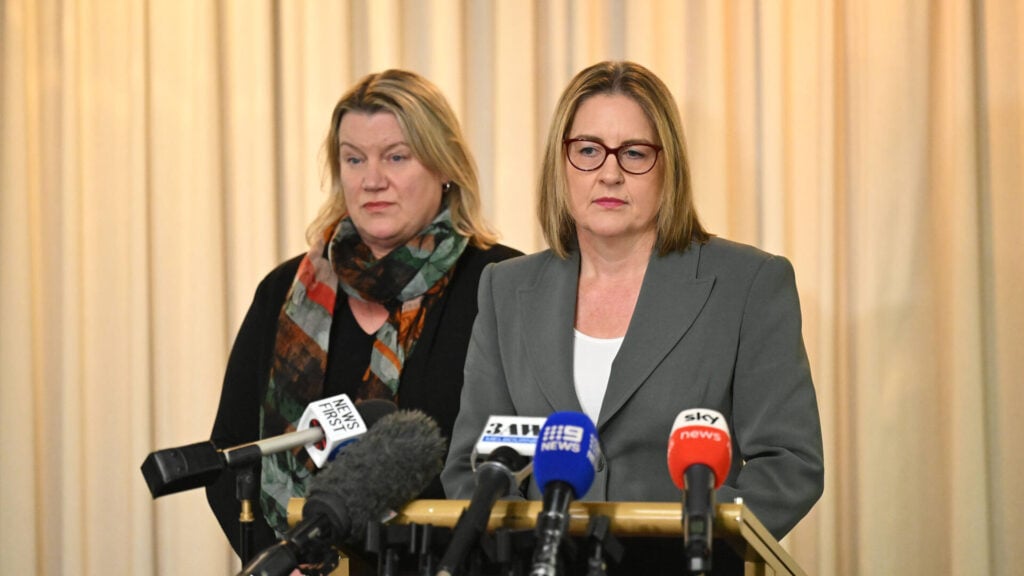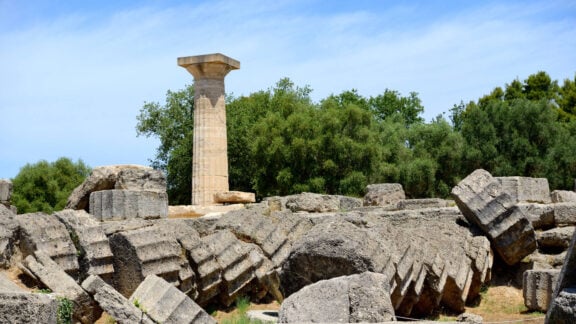The Victorian Parliament passed the nation’s toughest anti-vilification laws through the Anti-Vilification and Social Cohesion Bill 2024 in early April.
Premier Jacinta Allan, flanked by Minister for Multicultural Affairs Ingrid Stitt, told multicultural media gathered, that the bill is “about strengthening safety.”
“Speech that turns to violence is not freedom of speech – it’s hate speech, and hate speech is a crime,” Allen said.
The arson attack on the Adass Israel Synagogue last year signalled rising tensions. Anti-Israel protests – seen by many as veiled antisemitism – have stirred hostility not witnessed in over seven decades. Islamophobia is also on the rise; two Muslim women were recently assaulted in Melbourne’s north.
Last year, members of Hindu and Sikh communities clashed in the CBD over the call for an independent Sikh state, Khalistan.
Recently, a South Asian teenager was beaten by 15 students after enduring persistent bullying. Asian students continue to report racist abuse, while social media remains flooded with anti-Indian, antisemitic, and Islamophobic content.
“That’s why the anti-vilification bill is so important – because it makes that behaviour a crime,” said Premier Allan.
The legislation replaces the Racial and Religious Tolerance Act 2001 and seeks to address hate conduct more broadly. While the Coalition acknowledged the rise in tensions, it opposed the bill, citing concerns of overreach and inadequate enforcement of existing laws.
Coalition MP Evan Mulholland supported the intent of the bill but questioned its effectiveness in debating the bill in parliament.
“Sadly, we are witnessing an unprecedented rise in prejudice-fuelled hatred, violence and assaults on our streets,” he said.
While calling the strengthening of anti-vilification laws “commendable”, Mulholland warned the bill may have unintended consequences.
“Unfortunately, this bill has flaws that risk undermining social cohesion rather than improving it. For that reason, the Liberals and Nationals cannot support it in its current form.”

One example of concern over the bill’s potential to stifle free speech involved a Muslim high school student who claimed she was left with “psychological and mental trauma” after being shown a cartoon of the Prophet Mohammed during a class.
A cartoon from the satirical French magazine Charlie Hebdo was shown during a Year 11 media class at Mount Ridley College last October. Charlie Hebdo was the target of a 2015 terrorist attack by French-born brothers Saïd and Chérif Kouachi, who killed 12 people and injured 11. After the lesson, a student’s father lodged a complaint and demanded an apology saying his daughter has suffered “psychological trauma” and the ICV called for the teacher’s sacking.
Regardless of concerns over free speech, the premier hit back at the opposition, describing their stance as “another shifting of the goalposts from a Liberal Party that never wanted to support this bill.”
“Yes, we all respect and value the right to freedom of speech in our vibrant democracy.
But I also believe very strongly that whether it’s a young man in a turban, a Jewish boy on his way to school, or a woman in a hijab at a shopping centre – all deserve the freedom of safety in our community. That’s what this bill is about,” she said.

A shift in multicultural policy focus
The reform also reflects concerns about a perceived decline in institutional support for traditional multiculturalism. Some argue that the growing emphasis on identity and diversity has come at the cost of core bipartisan multicultural values like civic responsibility and social cohesion.
The Allan government is now facing pressure to remove Mohamed Mohideen from the Victorian Multicultural Commission (VMC) following a social media post in which he compared Israel’s actions in Gaza to the Holocaust.
Mohideen, also Vice President of the Islamic Council of Victoria (ICV), has made statements critics say are incompatible with his role as Commissioner.
The ICV also recently opposed a proposed (but ultimately abandoned) parliamentary motion to recognise the Christian genocides of Greeks, Armenians, and Assyrians by the Ottoman Empire in the early 20th century.
Critics argue that VMC Commissioners should be promoting social cohesion – not fuelling division.
In response, the Premier and Minister Stitt have appointed veteran multicultural leader George Lekakis – a former VMC Chair – to lead a comprehensive review of the state’s multicultural policies and programs.

“Social cohesion has been frayed due to global events. That’s why George Lekakis is looking at what we need to do to support our multicultural communities better”, Allan said.
“George Lekakis is just about the best – no, he is the best.”
When asked by Neos Kosmos whether the review would include institutions such as the Immigration Museum – which has shifted its focus from migrant stories to identity politics – and departments like Creative Victoria, which similarly prioritise identity over multiculturalism, Minister Stitt responded by pointing to a structural shift:
Premier Allan has returned the Multicultural Affairs portfolio to the Department of Premier and Cabinet.
“We now have a whole-of-government focus, which is powerful and important,” she said.
“Our department works closely with other departments to ensure the voices of multicultural communities are reflected across all areas.”
On Lekakis’ appointment, she added, “I agree with the Premier – Lekakis is the perfect person to undertake this review. He’ll be engaging closely with leaders and communities because it’s vital that we get this right.”
Stitt acknowledged that while Victorians excel at celebrating diversity, social cohesion is under growing pressure.
“We love to celebrate, but there’s no question that our cohesion is being tested. I want to ensure our multicultural institutions are fit for the future – that’s the sharp focus George brings to his work.
In a couple of months, he’ll make recommendations and we’ll have more to say.”

Multicultural media a gel in social cohesion
The premier and minister also announced a second round of grants for multicultural media outlets.
Grants of up to $25,000 will be available to help organisations deliver in-language information and expand their capacity.
“Access to news is vital to ensure everyone can participate in our democracy and community life,” said Allan.
“As Australia’s most multicultural state, we have a proud history of celebrating our linguistic and cultural diversity.”
Minister Stitt added, “Another round of successful grants will help outlets upgrade equipment and build capacity.
“We’re also committed to supporting the next generation of multicultural media professionals.
Talking to multicultural media Stitt said, “Your role is crucial – not just in informing communities, but in empowering them to engage in civic life.”







